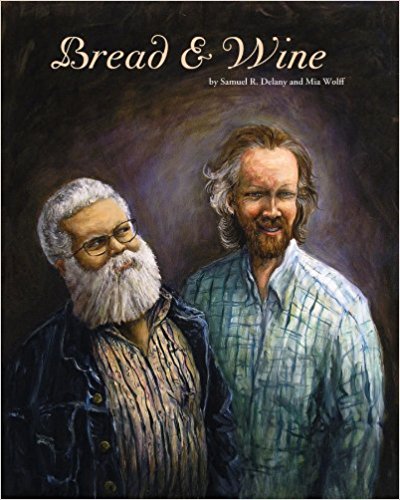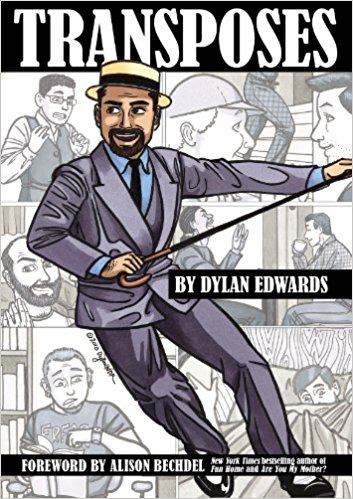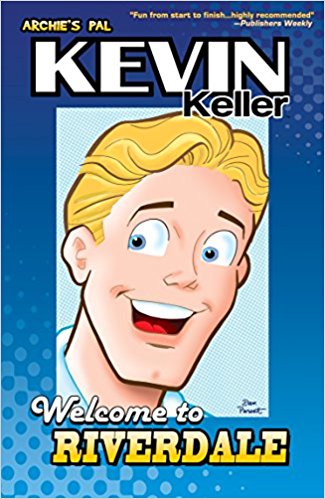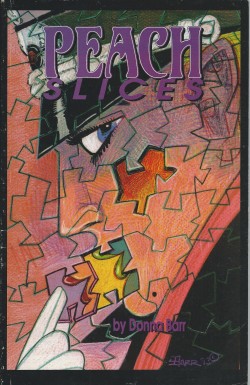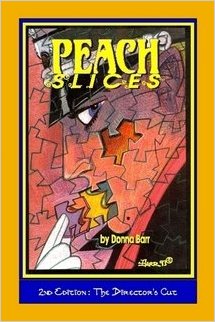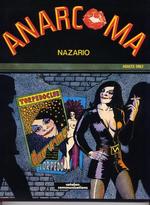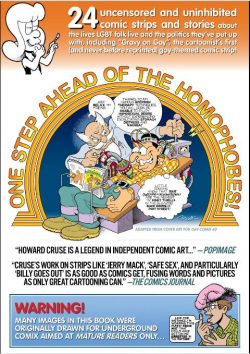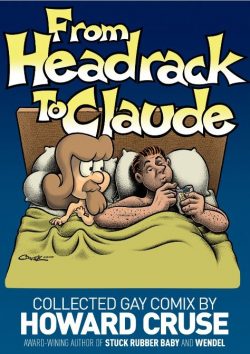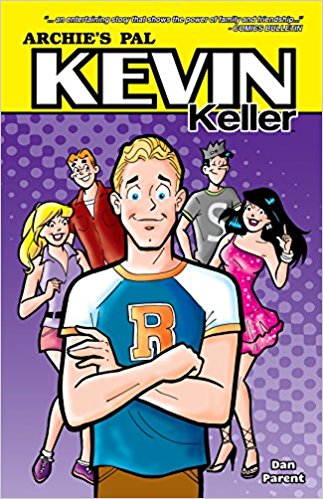
By Dan Parent, Rich Koslowski, Jack Morelli & Digikore Studios (Archie Comics)
ISBN: 978-1-87979-493-1 (HC)
Following the debut of Superman, MLJ were one of many publishers to jump on the “mystery-man†bandwagon, concocting their own small but inspired pantheon of gaudily clad crusaders. In November 1939 they launched Blue Ribbon Comics, and swiftly followed up with Top-Notch and Pep Comics. The content was the era’s standard mix of masked champions, clean-cut two-fisted adventurers, genre prose pieces and gags.
Not long after, Maurice Coyne, Louis Silberkleit and John Goldwater (hence MLJ) spotted a gap in the blossoming yet crowded market. In December 1941 the Fights ‘n’ Tights, heaving He-Man crowd were gently nudged aside by a far less imposing hero; an ordinary teenager having mundane adventures just like the readership, but with the companionable laughs, good times and romance emphasised.
Goldwater developed the youthful everyman protagonist concept and tasked writer Vic Bloom & artist Bob Montana with making it work. Inspired by and referencing the successful Andy Hardy movies (starring Mickey Rooney), their new notion premiered in Pep Comics #22. The unlikely star was a gap-toothed, freckle-faced, red-headed kid obsessed with impressing the pretty blonde next door.
A 6-page untitled tale introduced hapless boob Archie Andrews and wholesomely fetching Betty Cooper. The boy’s wry and unconventional best friend and confidante Jughead Jones also debuted in that vignette, as did idyllic small-town utopia Riverdale. It was a huge hit and by the winter of 1942 the kid had won his own series and then a solo-starring title.
Archie Comics #1 was MLJ’s first non-anthology magazine and with it began an inexorable transformation of the entire company. With the introduction of ultra-rich, raven-haired Veronica Lodge, all the pieces were in play for the industry’s second Genuine Phenomenon…
By 1946 the kids were in charge, and MLJ officially reinvented itself as Archie Comics, retiring most of its costumed characters years before the end of the Golden Age and becoming, to all intents and purposes, a publisher of family-friendly comedies.
The hometown settings and perpetually fruitful premise of an Eternal Romantic Triangle – with girl-hating Jughead to assist or deter and scurrilous love-rat rival Reggie Mantle to test, duel and vex our boy in their own unique ways – the scenario was one that not only resonated with fans but was somehow infinitely fresh and engaging…
Like Superman’s, Archie’s success forced a change in content at every other US publisher (except Gilberton’s dry and po-faced Classics Illustrated), creating a culture-shifting multi-media brand which encompassed TV, movies, newspaper strips, toys and merchandise, a chain of restaurants and (in the swinging sixties) a pop music sensation when Sugar, Sugar – from the animated TV cartoon – became a global summer smash hit.
Clean and decent garage band “The Archies†has been a fixture of the comics ever since…
The perennial eternal triangle has generated thousands of charming, raucous, gentle, frenetic, chiding and even heart-rending humorous dramas ranging from surreal wit to frantic slapstick, with the kids and a constantly expanding cast of friends (boy genius Dilton Doily, genial giant jock Big Moose and occasional guest Sabrina the Teenage Witch amongst so many others), growing into an American institution and part of the American cultural landscape.
The feature has thrived by constantly refreshing its core archetypes; boldly and seamlessly adapting to the changing world outside its bright and cheerful pages, shamelessly co-opting youth, pop culture, fashion trends and even topical events into its infallible mix of comedy and young romance.
Each and every social revolution has been painlessly assimilated into the mix and over the decades the company has confronted most social issues affecting youngsters in a manner both even-handed and tasteful.
Constant addition of new characters such as African-American Chuck Clayton and his girlfriend Nancy Woods, fashion-diva Ginger Lopez, Hispanic couple Frankie Valdez and Maria Rodriguez, student film-maker Raj Patel and spoiled home-wrecker-in-waiting Cheryl Blossom all contributed to a wide and refreshingly broad-minded scenario.
In 2010 Archie jumped the final hurdle – for decades a seemingly insurmountable one for kids comicbooks – when openly gay student Kevin Keller became an admirable advocate capably tackling and dismantling the last major taboo in mainstream comics.
Created by writer/artist Dan Parent and inker Rich Koslowski (lettered by Jack Morelli and coloured by Digikore Studios), Kevin debuted in Veronica #202 (September 2010). It was the first comicbook in the company’s long history to go into a second printing…
This landmark hardback (and eBook) compendium gathers that delightful debut from Veronica #205 plus the 4-issue Kevin Keller miniseries which cemented the new star’s popularity.
It all begins with context-establishing essay ‘Get to Know Kevin Keller’ before comic introductions are made in ‘Isn’t it Bro-Mantic’ as Veronica encounters a charming, good-looking and exceedingly-together lad who utterly bowls her over.
She is totally smitten with him even though he can out-eat human dustbin Jughead and loves sports. Although suave Kevin inexplicably loves hanging out with the ghastly Jones boy she is determined to make him exclusively hers.
Jughead (who clearly possesses fully-functioning gaydar) is truly cool with his new pal, and soon sees an opportunity to pay Ronnie back for many of the mean things she has said and done over the years…
When Kevin finally explains to Veronica why she is wasting her time, she takes it fabulously well and soon they are hanging out as best buds. After all, they have so much in common: chatting, stylish clothes, shopping, boys…
Immensely popular from the outset, Kevin struck a chord with the readership and returned a few months later in ‘The Buddy System’, with Veronica’s bombastic dad giving the obviously perfect new student the all-clear to monopolise his daughter’s time. The following fun-filled days do have one major downside however, as poor Betty is increasingly neglected…
You’d think Archie would be jealous too, but he’s just glad that someone “safe†is keeping other guys away from “his†Ronnie. It seems the ideal scenario for everyone but Betty, but then man-hunting, filthy rich over-privileged and entitled princess Cheryl Blossom hits town and puts everything back into perspective…
The repeat guest shots rapidly evolved into a miniseries, expanding Kevin’s role whilst answering many questions about his past. It started with ‘Meet Kevin Keller’ wherein we learned he was an army brat, born in Britain but raised all over the world, and now lives in Riverdale with his dad (retired and invalided army colonel) Thomas, mum Kathy and feisty sisters Denise and Patty.
It also reveals Kevin is a typical guy: he loves practical jokes as much as food and sports…
Whilst sharing these facts with Betty and Ronnie, he also lets slip some less impressive details: how he was a nerdy, braces-wearing late-developer who was frequently the target of bullies…
‘The Write Stuff’ is set during the build-up to his father’s surprise birthday party and discloses how Kevin plans to serve in the army before becoming a journalist, whilst also showing the gentle hero’s darker side after he is compelled to intervene – and end – the persecution of a young Riverdale student by bullies…
In ‘Let’s Get it Started’ the newcomer is ambushed and pressganged by his new friends into participating in a scholastic TV quiz show where his nerves almost get the better of him. Happily, Ronnie inadvertently breaks his paralysing stage-fright with a humiliating gaffe, but that’s just a palate cleanser for a potent object lesson in the concluding chapter…
As Kevin steps in to shelter and help one of the kids who used to torment him long ago, ‘Taking the Lead!’ also finds him reluctantly running for Class President at the insistent urging of Ronnie and the gang.
It’s not that he wants the position particularly, but when bigoted jock and star school quarterback David Perkins starts a campaign based on intolerance, innuendo and intimidation, Kevin feels someone has to confront the smugly-macho, “real man†who boasts he is the most popular boy in school…
And despite a smear campaign and dirty tactics any Presidential candidate would be proud of, truth, justice and decency win out…
This breezy and engaging collection concludes with ‘An Interview with Kevin Keller’ offering further background direct from the horse’s mouth and also includes a host of covers, variants and remastered classic Archie images retrofitted to suit our 21st century star. Archie’s Pal Kevin Keller is a joyous and magically inclusive collection for you and everyone you know and like to enjoy over and over again.
© 2012 Archie Comics Publications, Inc. All rights reserved.
